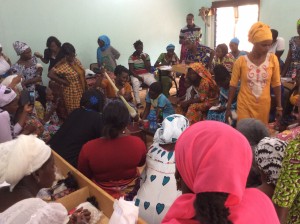One hundred and ten female facilitators of school for life of the Ghana Complementary Basic Educational (CBE) Program have undergone entrepreneurial training to enhance their livelihood.
The participants drawn from 8 districts– Saboba, Yendi, Kumbungu, Sagnarigu, Nanumba south, Zabzugu Central, Gonja and Mion, were taken through the processes of making liquid soap, chips, baking pastries and leadership, basic health issues and carrier guidance.
The training according to Sfl became necessary because the facilitation is voluntary and there is the need for them to cushion the participants economically, Sfl said. The training organizers say exposes the beneficiaries to practical demonstration of some of the businesses they prefer to start.
The Gender and Advocacy Manager at the school, Madam Lawrencia Abakisi told Zaa News that the program targeted females because few females want to become facilitators.
Extra attention was lavished to attract many females to come and take up the facilitating roles in their various communities, she explained. The support was also to help senior high school leavers who didn’t pass their exams to enable them enter into the tertiary institutions.
A beneficiary, Ms. Piako Elizabeth from Yendi municipality told Zaa News the skills acquired will empower her economically to pursue her dreams. “I learn to start to save to start a business while pursuing my nursing career,” Ms. Elizabeth said.
Another beneficiary form Zabzugu district, Ms. Nawuei Gladys said she learnt how to become a leader and save to help further her education. “As a school for life facilitator, it keeps my brain active and I acquire more knowledge during my facilitation,” Ms Gladys stated.
The Communications and Advocacy Officer at the school, Mr Fuseini Abdul Rahim explained that the CBE program was committed in ensuring that volunteers under the program give their best to help improve literacy levels in the rural communities.



